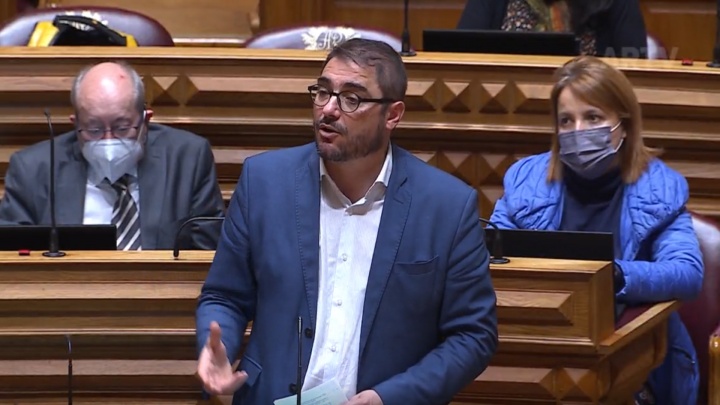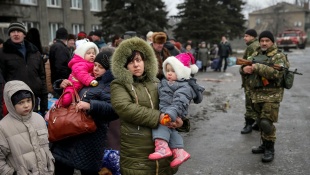Our first words are to express deep concern about developments in the escalation of political, economic and military confrontation and the serious risks that such confrontation involves.
War is the greatest danger humanity faces and Europe has one of the most painful experiences of what it can mean.
War is not a solution to any problem and every effort must be made to avoid it.
That is why we believe that the situation in Eastern Europe demands from Portugal and the Portuguese Government an intervention to curb this escalation of political, economic and military confrontation, to contribute to the de-escalation of the situation and to a negotiated solution that guarantees peace, to start with by refusing to involve Portuguese soldiers in operations that go against these objectives.
It is clear today that the situation in Ukraine is not a problem between Russians and Ukrainians, nor just a dispute over territory or demarcation of borders.
The problem is deeper, broader and stretches far beyond Eastern Europe.
The fundamental problem that involves the situation in Ukraine is the same problem that we have already seen taking place in Yugoslavia, Iraq, Afghanistan, Libya or Syria. It is the problem of using siege, confrontation and war to impose by force economic relations that generate greater injustices and inequalities or the appropriation of natural and energy resources. It is the problem of invoking or overlooking international law according to the convenience of circumstance.
It is the problem of using NATO as an instrument of these objectives and the problem of the European Union's subordination to the warmongering policy of the United States and NATO.
It is worth questioning to whom a new war in Europe ultimately serves.
It does not serve the Ukrainians or the Russians, nor does it serve the other European peoples. But it serves the United States government and its military-industrial complex.
Both to distract attention from internal problems, or ensure the sale of arms on a large scale, or to take advantage of a war thousands of kilometres away from its own borders, the United States government and the American military-industrial complex are those truly interested in a new war in Europe and will certainly be willing to sacrifice every last Ukrainian or European to promote it.
On the other hand, we note Putin's recent speech, with statements that incorporate Tsarist Russia's own conceptions and that criticise decisions that, within the framework of the Soviet Union, tackled the issue of nationalities by recognising the rights of peoples and guaranteeing peace for more than 70 years.
Russia today being a capitalist country, its position is essentially determined by the interests of its elites and the holders of its economic groups, and despite the fact that the military budgets of NATO countries are ten times higher than that of Russia, it is not to be expected that Russia, whose people have experienced colossal aggressions throughout history, will find it acceptable for the enemy to be camped on its borders or encircle it militarily through an even greater expansion of NATO.
Just as it is not expected that Russia will accept that this same result be achieved through the action of the xenophobic and warmongering regime established in Ukraine following the 2014 coup d'état, which involved the use of fascist groups and which has never, to this today, observed the Minsk agreements.
This was the path that was followed to bring the world to this spot and this is the path that the PCP condemns.
The PCP considers that efforts must be made to ensure peace.
In the context in which the conflict in Ukraine stands today, the solution of peace can only be achieved by halting the escalation of confrontation between NATO, the United States and the European Union with Russia and counting on Russia's contribution to a political and peacefully negotiated solution.
The PCP defends this position with the coherence of those who have always refused war and defended peace as a solution to international conflicts.
We defended these principles when the wars against Yugoslavia, Iraq, Afghanistan, Libya or Syria were involved. We defend them today with the same conviction.




